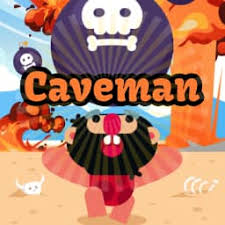Introduction
In today’s digital era, mobile devices have become more than just communication tools. They are powerful entertainment hubs, offering users access to a vast universe of interactive experiences. Among the most engaging forms of digital entertainment are App Store Games, which have revolutionized the way people spend their free time. Whether you are a casual player who enjoys puzzle games during breaks or a competitive gamer chasing high scores and achievements, the App Store provides something for everyone.

The Growth of App Store Games
The popularity of App Store Games has grown rapidly since the launch of the first smartphones. Initially, mobile games were simple, with basic graphics and limited functionality. Over the years, advancements in technology have enabled developers to create complex, visually stunning, and highly immersive experiences. Today, mobile gaming rivals console and PC gaming in both quality and scope, attracting millions of daily active users. The constant evolution of mobile hardware and software ensures that these games continue to improve, offering players fresh content and innovative gameplay.
Variety and Accessibility
One of the main reasons behind the success of App Store Games is their sheer variety. Players can choose from genres like action, strategy, role-playing, racing, puzzles, and educational titles. This diversity allows the App Store to cater to every type of player, regardless of age or preference. Another factor is accessibility. Most people carry a smartphone at all times, making it incredibly easy to download and play games wherever they are. Unlike traditional gaming setups that require dedicated equipment, App Store Games fit seamlessly into daily life.
Free-to-Play and Paid Options
The business models for App Store Games are equally diverse. Many titles are free-to-play, supported by advertisements or optional in-app purchases. These purchases often include cosmetic upgrades, extra lives, or special abilities that enhance the experience without being mandatory. At the same time, premium games with one-time purchase costs also thrive, offering ad-free and fully unlocked experiences. This flexibility ensures that players can find something enjoyable within their budget while still supporting developers who create these engaging products.
Social and Competitive Features
Modern App Store Games are not just about individual play. Many titles incorporate social features that connect friends, family, and even strangers across the globe. From multiplayer battles to cooperative missions and leaderboard competitions, these features create a sense of community. For some players, the competitive aspect of achieving higher scores or climbing rankings adds motivation and excitement. Social features also help games spread more quickly, as players often invite friends to join in on the fun.
Educational Value of App Store Games
While entertainment is the primary focus, App Store Games also offer educational benefits. Many games are designed to sharpen problem-solving skills, enhance memory, or teach new subjects in interactive ways. Children can learn math, languages, or science concepts through gamified lessons, while adults might enjoy brain-training apps that keep the mind sharp. The combination of fun and learning makes these games valuable tools beyond simple leisure.
Challenges and Considerations
Despite their benefits, App Store Games come with certain challenges. Issues such as excessive screen time, in-app purchase temptations, and data privacy concerns are common. Parents need to monitor younger players’ usage, while adults should be mindful of balancing gaming with other responsibilities. Developers and platform providers continue to address these challenges by offering parental controls, time-limit settings, and transparent privacy policies. Awareness and responsible use are key to ensuring a healthy gaming experience.
The Future of App Store Games
Looking ahead, App Store Games are set to become even more sophisticated. Advances in augmented reality (AR), virtual reality (VR), and artificial intelligence (AI) will introduce groundbreaking features that blur the line between the digital and physical worlds. Cross-platform play, cloud gaming, and subscription services will further expand access and convenience. As mobile technology continues to evolve, so too will the possibilities for gaming on the App Store.
Conclusion
App Store Games have transformed the way people engage with entertainment, blending accessibility, variety, and innovation. From casual puzzles to immersive adventures, they cater to a broad audience while continually pushing the boundaries of what mobile devices can achieve. While players should remain aware of potential challenges, the overall impact of App Store Games is overwhelmingly positive, offering endless opportunities for fun, learning, and connection. As technology advances, the future of mobile gaming promises to be even more exciting.






